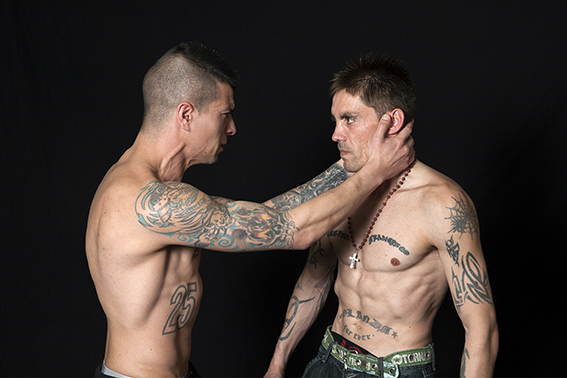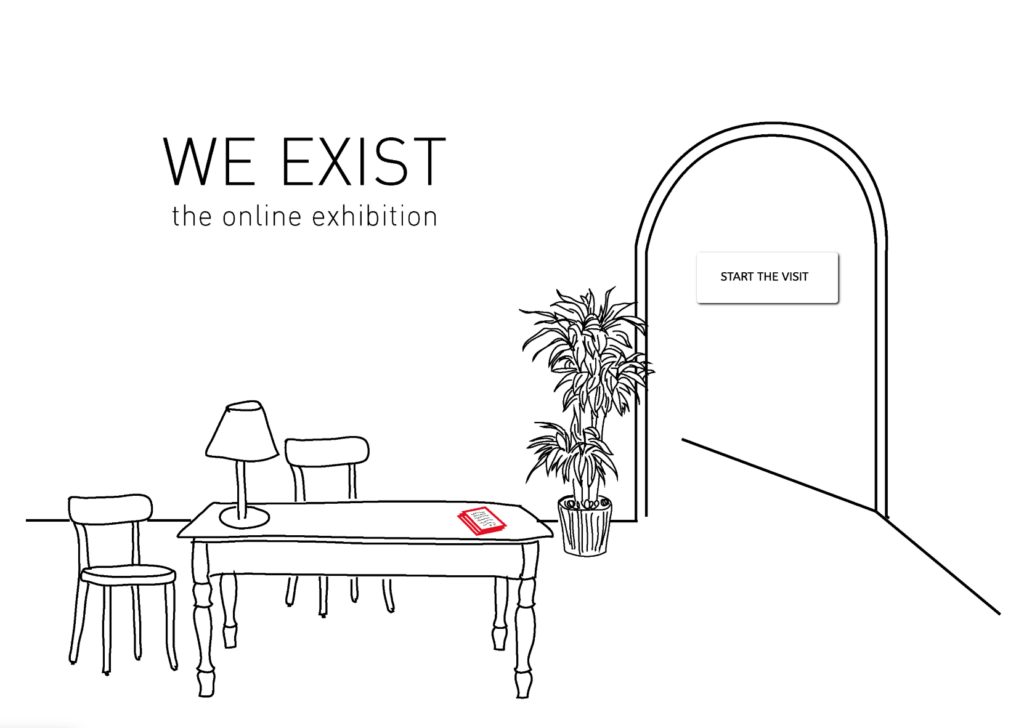
“I passionately work in prisons since 2009 (see the projects list and links below), because one of my aims as a social activist is the reduction of social stigma. As an ex-heroin addict and a prostitute, I suffered from stigma and self-stigma myself, and I have fought to overcome it. Now I use my past experiences as a way to show inmates that transforming our lives is possible”. Cristina Nuñez
People in prison are in a limit situation, physically and emotionally. Stigma is internalised into self-stigma, which enhances the limit situation in their self-image and identity. Karl Jaspers asserts that limit situations can awaken our consciousness and trigger a process of self-knowledge. This makes the prison a very fertile setting for SPEX workshops. A peer-to-peer approach and a genuine and empathic interest in their limit experience allows Cristina to create a trustful relationship with them. “Whenever I hold a presentation I tell my story, and a vast majority of inmates usually decide to participate to the workshop and produce powerful images, transforming their emotions into art”. C.N.
For her PhD by Publications on her artistic practice and SPEX, at the College of Art, University of Derby, UK, Cristina has analyzed feedbacks from 148 inmates who participated to the SPEX workshops. Results show that SPEX allows participants to broaden their perception of themselves and others (see Research below).

Projects in prison:
SPEX portrait project (two months), La Stampa prison, Lugano, Switzerland, 2019 and 2020.
We Exist, self-portraits in prison, a project funded by the EEA Grants of Norway, implemented in Norwegian prisons (Bredtveit, Ila and Ullersmo) in 2015-16. A permanent online exhibition can be seen here.
Self-portrait workshop (2 days) in Bollate Penitentiary, Milan, 2016.
Self-portrait project (6 months) in Quatre Camins prison, Barcelona 2015
Self-portrait workshop (2 days) in Brians 1 prison, Barcelona, 2015.
Self-portrait project (6 months) in Lledoners prison, Barcelona 2013
Self-portrait workshop (2 days) in Bollate Penitentiary, Milan, 2012.
Self-portrait project (6 months) in Brians 1 and Wad Ras prisons, Barcelona 2011
Self-portrait project (4 months) in San Vittore prison, Milan, 2009.
Research:
For her PhD by Publications on her artistic practice and SPEX, at the College of Art, University of Derby, UK, Cristina has analyzed feedbacks from 148 inmates who participated to the SPEX workshops. Results strongly support that SPEX allows participants to broaden their perception of themselves and others, as follows.
Broadening of self-perception:
96,5% of respondents expressed in different ways that they broadened their self-perception.
These results support the hypotheses that SPEX allows participants to look at themselves from a different point of view, which coheres with Frank Porporino’s views on how to encourage desistance in prison inmates by “developing programmes that don’t aim to change offenders but rather aim simply to help them explore – to look at their lives through some new lenses” (Porporino, 2010, p.78). Looking at oneself through new lenses can foster the discovery of unknown potential, as one inmate puts it, “I have learned that anything is possible, if you put the energy on things.” In prison, this could mean finding positive aspects in oneself: there are over 30 statements expressing the discovery of their “good sides” or qualities they didn’t know they possessed. Following are some of them:
- I have discovered that I have leadership skills and that I can be loved.
- It was useful to see and feel things I hadn’t even thought about or imagined. I have seen good things in me, that I didn’t see before.
- I loved to see things I didn’t know about myself, to see things I didn’t think I could express. I see I have things inside that I don’t know. The woman in the pictures wasn’t me! I have discovered that I am courageous, I’m a fighter, I’m stronger than I thought; and that I can be someone, I can be useful, I can be a good mother.
- I realised that I’m very strong, that I can deal with the dark side and make it lighter, that I don’t give up.
- I have discovered that I am strong and very vulnerable at the same time. I have seen my inner self and my feelings. I thought I didn’t have any.
Broadening of perception of others:
Most respondents (85%) asserted that the SPEX workshop allowed them to broaden their perception of their peers. Respondents expressed in different ways that the workshop allowed them to see their fellow inmates in a different way, and to discover “goodness” and other positive aspects in their peers, as evidenced from the following examples:
- I have discovered that my fellow inmates have more or less the same issues as me. This has allowed me to see them differently.
- In my fellow inmates’ photos I saw goodness, kindness.
- I’ve learned that everyone has a vulnerable side, even though they seem tough in person.
- I loved P.’s pictures, she looked like a warrior! And M.’s strength, and M.C.’s goodness.
- I realized, looking at the photos of others, that they are able to express and show details and gestures that I’d never seen in them.
- I’ve also seen my fellow inmates’ tender and human sides.
- I think I know them better, and I’ve become closer with some. Every one of them is unique, with many positive aspects.
- I have seen emotions in my peers’ photos, in their gazes. They have feelings. We all have feelings of guilt, sadness, anger and remorse.
- I now think that I shouldn’t judge others before knowing them.
The educational staff at La Stampa prison in Lugano, Switzerland, added that the broadening of perception of oneself and of others is useful to contrast the rigidity of prejudice and judgement which often causes violent thoughts and actions.
